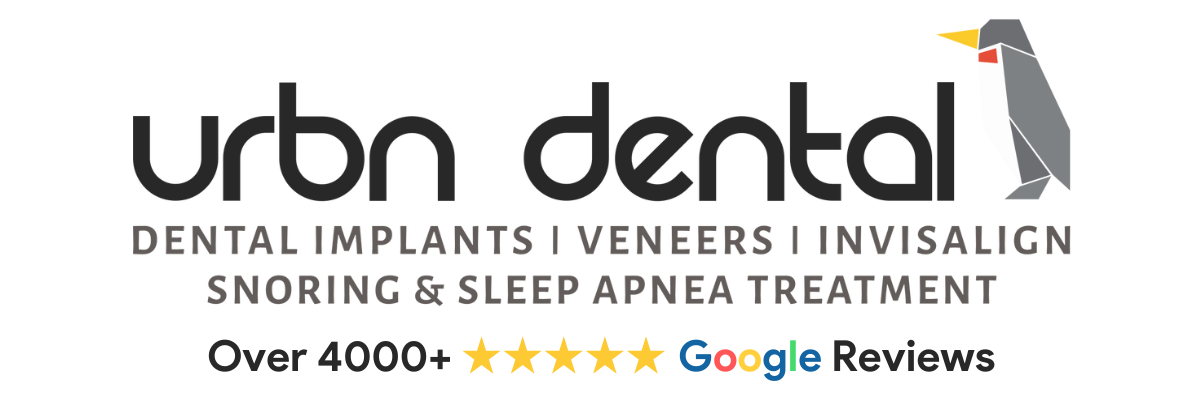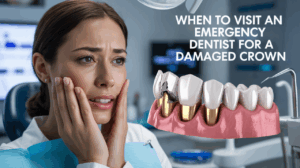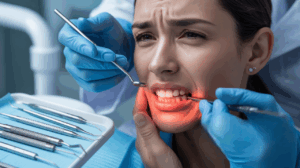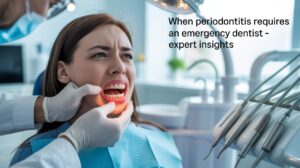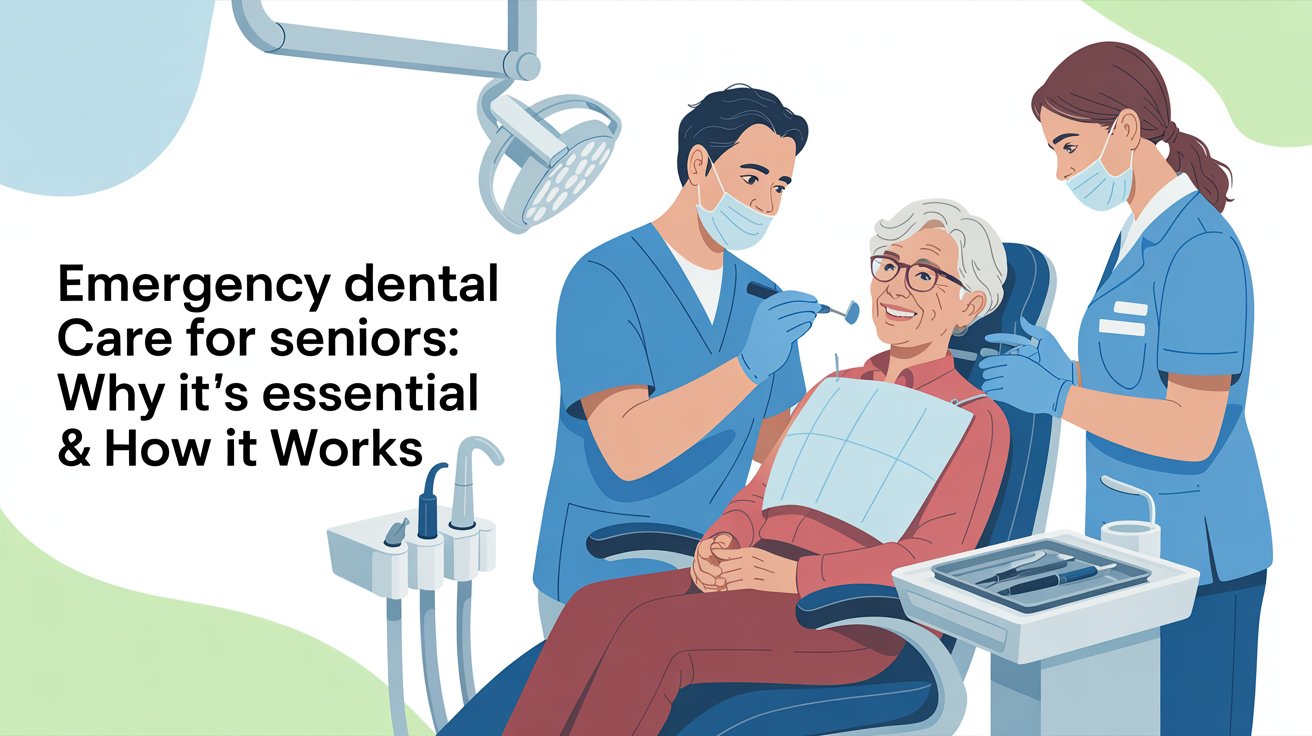
As we age, our oral health needs often change and can sometimes become more complex. For seniors, dental problems may feel more urgent, especially if they affect eating, speaking, or overall comfort. In these situations, emergency dental care in Houston may help support oral health and overall well-being.
Dental emergencies in older adults may involve anything from cracked dentures to sudden infections. Knowing when to seek care and how emergency dental services typically work can help seniors and caregivers feel more prepared.
Importance of Emergency Dental Care for Senior Citizens
Aging can bring natural changes to the teeth, gums, and supporting bone. Many older adults also take medications or manage health conditions that affect oral health. Because of this, issues like infections, gum disease, or broken dental work could sometimes progress more quickly or become harder to manage without timely evaluation.
Some key reasons why seniors may require emergency dental care in Houston include:
Higher Risk of Oral Infections
The mouth’s ability to fight bacteria may decrease with age. This may increase the likelihood of issues such as gum infections or dental abscesses. If untreated, these problems could sometimes lead to further complications, particularly for those managing conditions like diabetes or heart disease.
Complications from Restorations or Dental Work
Many seniors rely on crowns, bridges, or dentures. Over time, these restorations may wear down or break, leading to discomfort or difficulty eating and speaking. Broken or loose appliances could sometimes irritate oral tissues if not addressed in a timely manner.
Changes in Pain Sensitivity
Some seniors may not feel dental pain as strongly due to age-related sensitivity changes or conditions like dementia. This can sometimes result in problems being noticed only after they have progressed, so early evaluation is generally recommended.
If the pain tends to persist it is better to search for emergency dental services near me and find a dentist who can help you deal with the same.
Health Conditions and Medications
Dry mouth, a common side effect of medications for blood pressure, heart disease, or arthritis, may increase the risk of decay and gum issues. If symptoms like swelling, bleeding, or pain develop, contacting our emergency dentist could help reduce the likelihood of complications and allow for professional assessment.
How Emergency Dental Care Services for Seniors Work
When a senior experiences a dental emergency, here is what usually happens:
Step 1: Initial Contact
The first step is reaching out to our dental office that provides emergency care. Symptoms such as pain, swelling, or bleeding often help determine how quickly a patient should be seen. Sharing a list of medications and medical conditions can help the dentist provide safe and effective care.
Step 2: Examination and Diagnosis
Our dentist may perform a physical exam and take digital X-rays to help identify the cause of the issue, such as infection, a damaged restoration, or a fractured tooth. This step supports determining an appropriate treatment plan.
Step 3: Immediate Relief and Stabilization
Emergency visits generally aim to manage discomfort, address infection, and stabilize teeth or appliances. Some treatments may be completed in the same visit, while others may require follow-up care.
Step 4: Coordinated Care with Medical Providers
For seniors with complex health conditions, dentists may collaborate with physicians to ensure dental treatment aligns with the patient’s overall elderly care plan. This helps reduce risks related to medications or chronic conditions.
Call us today for a cost estimate or to learn about flexible payment options for emergency dental visits.
Seniors: When You Need Emergency Dental Care
It can sometimes be difficult to know whether an issue is truly urgent. In general, seniors or caregivers should consider calling our dentist if they notice:
- Ongoing or severe tooth pain
- Swelling in the gums or face
- Bleeding that doesn’t stop
- A loose or knocked-out tooth
- Broken or damaged dentures, crowns, or bridges
- Sudden difficulty chewing or swallowing
If you notice any of these issues, consider contacting our dentist promptly for evaluation, which may help manage discomfort and reduce the risk of complications.
Final Thoughts
For seniors, addressing dental emergencies promptly may help support comfort, dignity, and overall health. Whether it’s repairing a broken denture, easing pain from an infection, or stabilizing a damaged tooth, emergency dental care Houston provides important support.
If you’re searching for an Emergency Dentist in Houston, our clinic is here to help. We understand the unique needs of older patients and strive to provide compassionate, timely elderly care tailored to each situation.
FAQs
Can a senior with Alzheimer’s receive emergency dental treatment?
Yes, the approach can be adjusted based on individual needs. Specialized care may be provided for seniors with cognitive conditions, and sedation or simplified procedures might be considered where appropriate.
How much does emergency dental care cost?
Costs vary depending on the treatment required. Some Medicare Advantage or dental insurance plans may cover emergency visits, though it’s best to check with the provider in advance.
What are common dental emergencies for seniors?
Broken dentures, dislodged crowns, toothaches, gum infections, and complications after extractions are among the most common dental issues. Some may require timely care to help manage discomfort and support oral function.
